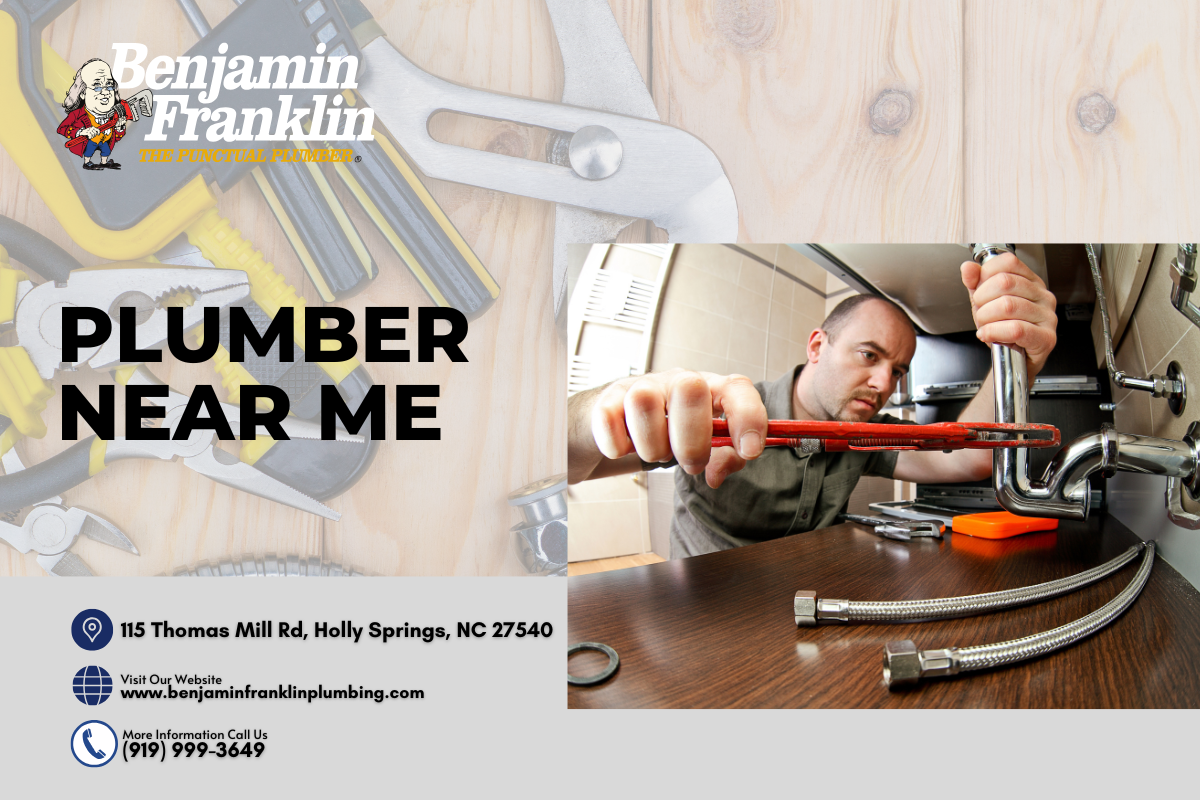

In today’s fast-paced world, technological innovations are redefining industries across the board, and plumbing is no exception. From advanced diagnostics to smart home integration, the field of plumbing is undergoing a significant transformation. This article delves into the innovative technologies transforming the plumbing industry today and explores how these advancements are benefiting both plumbers and customers alike.
The Role of Technology in Modern Plumbing
Technology has become an integral part of every industry, including plumbing. The traditional methods of fixing leaks or unclogging drains are being supplemented—and often replaced—by state-of-the-art technology that improves efficiency and effectiveness.
Automated Leak Detection Systems
One of the most exciting developments in plumbing technology is automated leak detection systems. These systems use sensors to monitor water flow and pressure, alerting homeowners and plumbers to potential leaks before they become serious issues.
- Benefits: Early detection prevents extensive water damage. Reduces costs associated with emergency repairs. Helps in conserving water resources.
Smart Toilets: A Game-Changer for Water Efficiency
Smart toilets are gaining popularity for their ability to save water while enhancing user comfort. These toilets come equipped with features like automatic flushing, heated seats, and built-in bidets.
- Advantages: Reduces water consumption significantly. Enhances hygiene and user experience. Can be controlled via smartphone applications.
Innovative Technologies Transforming Plumbing Services
The advent of new technologies has also transformed plumbing services, making them more efficient and customer-friendly.
3D Printing in Plumbing Parts Manufacturing
3D printing technology is revolutionizing how plumbing parts are manufactured. With this technology, custom parts can be produced on-demand, reducing lead times and manufacturing costs.
- Key Points: Allows for customization based on specific project needs. Minimizes waste by producing only what is necessary. Speeds up repair times significantly.
Drones for Pipe Inspection
Using drones for pipe inspection is becoming a common practice among plumbers. Drones equipped with cameras can inspect hard-to-reach areas without disturbing property.
- Benefits: Provides high-quality visual data for better diagnostics. Saves time compared to traditional inspection methods. Reduces labor costs associated with manual inspections.
Integrating Smart Home Technology into Plumbing
With the rise of smart homes, integrating smart technology into plumbing systems has become essential.
IoT-enabled Devices for Remote Monitoring
Internet of Things (IoT) devices allow homeowners to monitor their plumbing systems remotely. These devices can send alerts about leaks or unusual activity directly to a smartphone.
- Features: Real-time monitoring enhances peace of mind. Users can proactively manage their water usage. Data analytics helps identify trends over time.
Voice-Controlled Plumbing Systems
Imagine controlling your faucets or showers with just your voice! Voice-controlled systems are now available, making plumbing operations more convenient than ever before.
- Advantages: Offers hands-free operation for added convenience. Can be integrated with existing smart home ecosystems. Enhances accessibility for individuals with disabilities.
Sustainable Innovations in Plumbing Technology
As environmental concerns grow, https://www.google.com/maps?cid=17789744897491115020 sustainable practices are gaining traction in the plumbing industry.
Water Recycling Systems
Water recycling systems collect greywater from sinks and showers for reuse in irrigation or toilet flushing.
- Benefits: Reduces overall water consumption dramatically. Can help homeowners save on utility bills. Contributes to environmental conservation efforts.
Eco-Friendly Pipe Materials
Innovative materials such as PEX (cross-linked polyethylene) pipes offer superior durability while being lightweight and resistant to corrosion.
- Key Points: PEX pipes require less energy to manufacture than traditional materials like copper. They offer long-term cost savings due to their lifespan and reduced maintenance needs.
The Impact of Mobile Applications on Plumbing Services
Mobile apps have changed the way consumers interact with plumbers. Platforms that connect customers with local plumbers have simplified service requests significantly.
Plumbing Service Apps: A New Era of Convenience
Apps like Thumbtack or TaskRabbit enable users to find reliable plumbers near them quickly:
- Features: Instant quotes based on service requirements. Customer reviews help in making informed decisions.
Scheduling and Payment Solutions via Apps
These apps often include scheduling tools that allow customers to book appointments at their convenience while offering secure payment options directly through the platform.
- Benefits:
- Simplifies the payment process after services are rendered. Reminders ensure customers never miss an appointment again.
Training Plumbers in New Technologies
As innovative technologies continue evolving, so must those who work within this industry. Training programs focusing on modern equipment and software are essential for today’s plumbers.
Upskilling Programs for Traditional Plumbers
Many organizations now offer training programs specifically designed for current plumbers seeking to familiarize themselves with new technologies:
Online courses covering advanced diagnostics Workshops focused on IoT applications Certifications in sustainable practicesIncorporating Tech into Apprenticeships
Apprenticeship programs now include modules on emerging technologies such as drone usage and mobile application management:
- Advantages:
- Prepares new entrants for a tech-centric job market Ensures skill sets remain relevant over time
Challenges Faced by Plumbers Adapting to New Technologies
While these innovations bring numerous benefits, adapting can come with its own set of challenges:
Cost Implications of Upgrading Equipment
Investing in cutting-edge tools may initially seem daunting for many plumbing businesses:
- Points to Consider:
- Initial investment vs long-term savings Financing options available for small businesses
Staying Updated with Rapid Changes in Technology
Technology evolves rapidly; thus, keeping up-to-date becomes crucial:
Subscribing to industry newsletters Attending trade shows Participating in forums focused on technology advancementsCustomer Experience Boosted by Innovative Technologies
The ultimate goal of any technological advancement within plumbing should focus on enhancing customer experience:
Enhanced Communication Between Customers and Plumbers
Modern tools facilitate seamless communication between service providers and clients:
- Features:
- Real-time updates during service calls Easy access to contact information through apps
Transparent Pricing Through Digital Platforms
Transparent pricing models provide clarity around service costs:
Itemized breakdowns ensure customers know what they pay for Avoids unexpected fees after job completionFAQs About Innovative Technologies Transforming the Plumbing Industry Today
Here are some common questions related to how innovative technologies transform the plumbing industry:
Q1: How do automated leak detection systems work?
A1: Automated leak detection systems utilize sensors that monitor changes in flow rate or pressure, alerting users immediately if there’s a potential leak detected within their system.
Q2: What advantages do smart toilets offer?
A2: Smart toilets provide increased hygiene through features like self-cleaning capabilities while also conserving water through more efficient flushing mechanisms compared to traditional toilets.
Q3: Are drones safe for inspecting pipework?
A3: Yes! Drones minimize human exposure during inspections while providing detailed visual data from difficult-to-access areas safely without causing disruption onsite at properties under review by Holly Springs plumbers or any other certified professionals nearby!
Q4: How does IoT enhance my home’s plumbing?
A4: IoT devices empower you by enabling remote monitoring; they send alerts about irregularities such as leaks directly onto your smartphone so you can take action swiftly!
Q5: What training options exist if I want my plumber trained in modern tech?
A5: Various organizations offer specialized courses aimed at familiarizing plumbers with new equipment & techniques; look out specifically tailored programs targeting IoT integration or eco-friendly methodologies!
Q6: Will investing in new technologies ultimately save money?
A6: While upfront costs may be higher initially when investing heavily upfront into tech upgrades—over time these investments typically lead towards reduced operational expenses due primarily improved efficiencies achieved via automation processes implemented across various facets business operations!
Conclusion
Innovative technologies transforming the plumbing industry today hold immense promise not only for professional plumbers but also homeowners seeking reliable solutions tailored towards modern living demands! From automated leak detection systems that prevent costly damages before occurring down simplicity offered through mobile applications facilitating quick access trusted local experts – it’s evident we’re witnessing evolution firsthand! As we embrace these advancements together let us remember one thing above all else—innovation isn’t merely about adopting new gadgets but rather fostering relationships built upon trust delivering exceptional value each step along way ensuring everyone involved benefits equally throughout journey ahead!